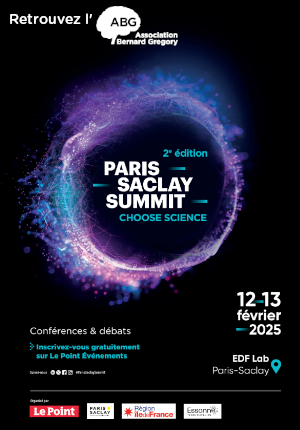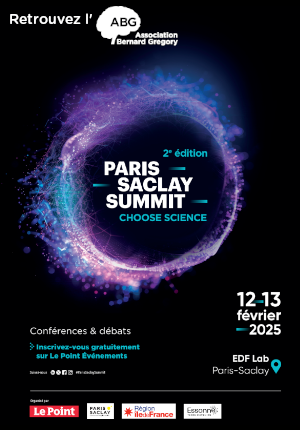THz biosensors based on dielectric photonic crystal cavities for molecules and vesicles detection
| ABG-127992 | Sujet de Thèse | |
| 17/01/2025 | Financement de l'Union européenne |
- Physique
- Biologie
- Sciences de l’ingénieur
Description du sujet
THz waves, typically between 0.1 THz and 10 THz, have great potential for a wide range of biomedical diagnostic applications, as well as for the fundamental study of a variety of biomolecules. Indeed, many biomolecules and biomolecular complexes exhibit relevant intramolecular and intermolecular resonances in this frequency range, paving the way for a wide range of biomedical and diagnostic applications. THz biosensing is therefore a fast-growing field of research. An extraordinary advantage of THz spectroscopy for biological applications is that it enables direct, label-free probing of the interaction of biomolecules with THz radiation.
The aim of this internship is to develop original THz photonic crystal cavities offering a high THz electric field concentration with an ultra-high quality factor, and thus optimized for high-sensitivity THz biosensing. Òur group has recently realized THz cavities providing high electric field confinement with a quality factor of a few tens but limited by the use of metals with ohmic losses [1,2]. To overcome these limitations, the candidate will realize dielectrically patterned, metal-free, THz photonic crystal cavities that will be further implemented into THz biosensors, to come closer to today's state-of-the-art bioanalytical tools. The candidate will design the THz photonic crystal cavities using simulations based on finite element method, participate to their fabrication and investigate their optical properties using THz spectroscopy systems.
This internship may be pursued by a thesis. Further developments in the PhD project will aim to develop THz biosensors based on the photonic crystal cavities and demonstrate their potential for detecting minute volumes of biological material such as molecules and vesicles. The thesis project is part of a European project on THz biosensors. During the PhD, the candidate will visit the partner laboratories involved in the project and carry out experiments in their laboratories.
Prise de fonction :
Nature du financement
Précisions sur le financement
Présentation établissement et labo d'accueil
The Physics Laboratory of the Ecole Normale Supérieure (LPENS) is a Joint Research Unit between CNRS and SU, (which is Sorbonne University), located on the site of « Partner institution: SU, PSL, etc. ». The NanoTHz group at LPENS hosts 5 researchers and 12 students. The group has several advanced THz spectroscopy systems, such as ultrabroadband THz time-domain spectroscopy systems, optical pump-THz probe experiments, THz nonlinear experiments, CW THz spectroscopy systems and FTIR spectrometers. LPENS is also equipped with a clean room for nanofabrication. The LPENS organizes weekly seminars for PhD students and supervisors on interdisciplinary topics. Status of Research Premises The group is located at the Ecole Normale Supérieure which is at the same time a French grande école and a university. ENS provides excellent training through research and defines and applies scientific and technological research policies, from a multidisciplinary and international perspective.
Profil du candidat
Job Requirements
A master’s degree (or an equivalent university degree) in Physics, Optics, Electrical Engineering, or a related field.
Theoretical and applied knowledge or interest in: condensed matters, basic optics and photonics, measurement techniques and simulation.
Strong motivation to deliver groundbreaking work and ambition to excel.
A research-oriented attitude.
Ability to work in an interdisciplinary team and interested in collaborating with industrial partners.
Motivated to develop your teaching skills and coach students.
Fluent in spoken and written English (C1 level).
Recruited researchers can be of any nationality and must comply with the following mobility rule: they must not have resided or carried out their main activity (work, studies, etc.) in the country of the recruiting beneficiary for more than 12 months in the 36 months immediately before the recruitment date - unless as part of a compulsory national service or a procedure for obtaining refugee status under the Geneva Convention.
Vous avez déjà un compte ?
Nouvel utilisateur ?
Vous souhaitez recevoir nos infolettres ?
Découvrez nos adhérents
 Institut Sup'biotech de Paris
Institut Sup'biotech de Paris  ANRT
ANRT  Laboratoire National de Métrologie et d'Essais - LNE
Laboratoire National de Métrologie et d'Essais - LNE  Généthon
Généthon  Ifremer
Ifremer  TotalEnergies
TotalEnergies  Groupe AFNOR - Association française de normalisation
Groupe AFNOR - Association française de normalisation  Institut de Radioprotection et de Sureté Nucléaire - IRSN - Siège
Institut de Radioprotection et de Sureté Nucléaire - IRSN - Siège  MabDesign
MabDesign  PhDOOC
PhDOOC  ADEME
ADEME  SUEZ
SUEZ  CESI
CESI  Tecknowmetrix
Tecknowmetrix  ONERA - The French Aerospace Lab
ONERA - The French Aerospace Lab  Aérocentre, Pôle d'excellence régional
Aérocentre, Pôle d'excellence régional  CASDEN
CASDEN  Nokia Bell Labs France
Nokia Bell Labs France  MabDesign
MabDesign






